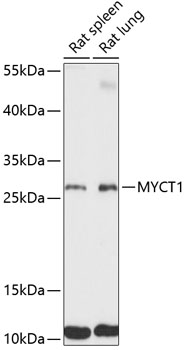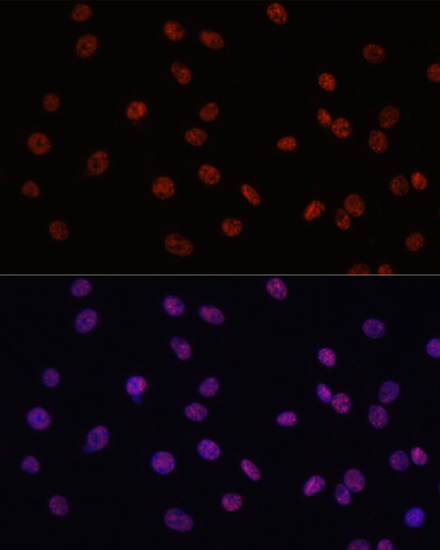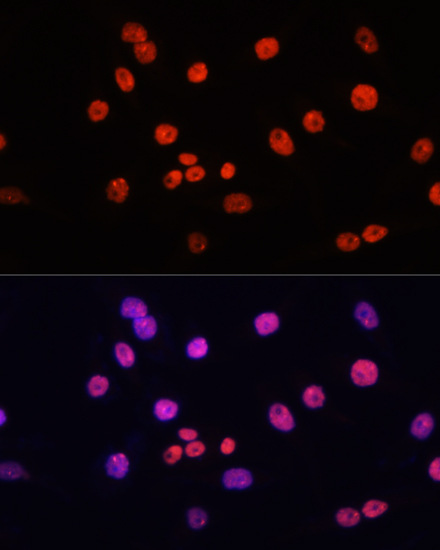-
Product Name
MYCT1 Polyclonal Antibody
- Documents
-
Description
Polyclonal antibody to MYCT1
-
Tested applications
WB, IF
-
Species reactivity
Human, Mouse, Rat
-
Alternative names
MYCT1 antibody; MTLC antibody; MYC target 1 antibody
-
Isotype
Rabbit IgG
-
Preparation
Antigen: Recombinant fusion protein containing a sequence corresponding to amino acids 99-235 of human MYCT1 (NP_079383.2).
-
Clonality
Polyclonal
-
Formulation
PBS with 0.02% sodium azide, 50% glycerol, pH7.3.
-
Storage instructions
Store at -20℃. Avoid freeze / thaw cycles.
-
Applications
WB 1:500 - 1:2000
IF 1:50 - 1:200 -
Validations

Western blot - MYCT1 Polyclonal Antibody
Western blot analysis of extracts of various cell lines, using MYCT1 antibody at 1:3000 dilution.Secondary antibody: HRP Goat Anti-Rabbit IgG (H+L) at 1:10000 dilution.Lysates/proteins: 25ug per lane.Blocking buffer: 3% nonfat dry milk in TBST.Detection: ECL Basic Kit .Exposure time: 90s.

Immunofluorescence - MYCT1 Polyclonal Antibody
Immunofluorescence analysis of C6 cells using MYCT1 antibody at dilution of 1:100. Blue: DAPI for nuclear staining.

Immunofluorescence - MYCT1 Polyclonal Antibody
Immunofluorescence analysis of HeLa cells using MYCT1 antibody at dilution of 1:100. Blue: DAPI for nuclear staining.
-
Background
May regulate certain MYC target genes, MYC seems to be a direct upstream transcriptional activator. Does not seem to significantly affect growth cell capacity. Overexpression seems to mediate many of the known phenotypic features associated with MYC, including promotion of apoptosis, alteration of morphology, enhancement of anchorage-independent growth, tumorigenic conversion, promotion of genomic instability, and inhibition of hematopoietic differentiation (By similarity).
Related Products / Services
Please note: All products are "FOR RESEARCH USE ONLY AND ARE NOT INTENDED FOR DIAGNOSTIC OR THERAPEUTIC USE"
